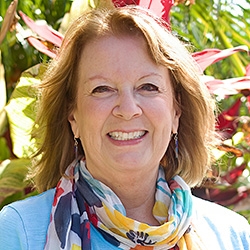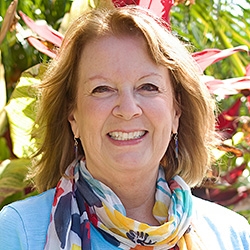

Search Results: meetings
-
Awaken your soul force and live from compassion and clarity while grounded in human needs.
-
Observation is the awareness of our sensory perceptions and thoughts, separate from evaluations and judgments. Feeling involves bodily sensations and emotions, distinct from "faux feelings" that mix thought and emotion. Needs encompass universal human requirements for survival and wellness, while thoughts and evaluations express needs. Requests are rooted in connection and invite true willingness, rather than demanding compliance.
-
- Reclaim the lost voices of your ancestors
- Understand the impact of collective trauma on your family line
- Open yourself up to have more warmth for yourself and your children
- Restore the flow of love and energy from past generations
-
-
Iris Bawidamann explains how needs, like appreciation, can easily turn into demands or self-blame when approached from a place of lack or expectation. This practice is based on the work of Living Compassion, shared by Robert Gonzales, focusing on the beauty of needs and the living energy of needs
-
- Learn the essentials of NVC from its founder, Dr. Marshall Rosenberg
- Discover how to connect with others with empathy, integrity, and peace
- Understand the origins of NVC and how to apply it within yourself and in your life
- Experience how empathy supports healing in your most intimate relationships— and in the world at large!
-
I’m Jeff Brown, Executive Director of the Center for Nonviolent Communication. Mary asked me to be a guest writer for this newsletter, and it’s allowed me to look deeply at the role NVC plays in my life, personally and professionally— especially in running a successful NVC organization.
As the director of an NGO, I am grateful to have learned Nonviolent Communication. I utilize the principles constantly, and I’m not sure how I would survive without them.
-
Exploring why “to be” verbs like heard or valued are seen as strategies, not needs, in NVC.
-
Learn to track requests, agreements, time, and session purpose with helpful tips.
-
According to this article, what we do before we move into the NVC dance profoundly influences the outcome and everyone involved. This "before" step increases the likelihood of living compassionately, and our support openness to outcome. It can also make our NVC practice less connecting, and more evaluative. The article addresses these points and talks about ways to move beyond the dead past, and the imagined future, to step into the the only “time and place” that both NVC operates and that the connection we so fervently want actually exists (ie. the present moment).
-
When it comes to self-sabotage and self-limitation, what's happening when we make ourselves smaller than we are? And what is it with the crippling experience we suffer when we exceed our own self-imposed limitations? What unconscious needs is your nervous system meeting by remaining small? Read on for the insights of Beatrice Beebe's research on biological imperatives, emotional language, and emotional limitations.
-
Before you make a request you can connect fully to a time when your need was met. Notice how your request feels and sounds different from this place of aliveness. Excitement about meeting a need implies confidence and trust about moving forward together. Offer an invitation to find strategies that work for both of you.
-
Sylvia Haskvitz offers a practical and effective approach to making requests. Learn the two questions that can clarify your motivation for making a request, three ways to discern a request from a demand, and five possible reasons for meeting requests.
-
Every interaction with children contains messages about who they are, who we are, and what life is like. By engaging attachment parenting and NVC we give them rare gifts in society: to know their parents well, to discover the effects of their actions without being blamed for them, and to experience the power of contributing to meeting others' needs, and the power to move towards mutually satisfying outcomes.
-
Use this exercise to stay in dialogue and connect to needs while facing a “no”. Identify a situation where you have low confidence that you'll get your needs met, and it'll be hard hearing a “no” to your request. Explore your response to the “no” by working with feelings, needs, request and alternate strategies. Thus you can work towards meeting your needs while also releasing the idea that your needs “have to” be met.
-
When someone behaves in a way that you may label convincing, cajoling, guilt-tripping, threatening, analyzing, or criticizing, you may be tempted to guess they have a "need" for control. Instead, name what this person is doing that isn't meeting your needs. If it is a true need your heart will have softened. If you feel resentment or resistance, you are likely making a judgment rather than guessing what they are needing.
-
Kristin Masters explores how to approach goal-setting and self-reflection with compassion and mindfulness grounded in NVC principles. She encourages you to examine how conscious choice plays a role in how we treat ourselves and others.
-
-
Master fear through exercises, empathy, creativity and the power of truth telling.
-
Trainer Tip: Q: How do we get the love we want? A: Ask for it.

Quick Links
Subscription Preferences
Stay In Touch!
Looking for ways to keep up with NVC Academy news, get special offers, free resources, or words of inspiration? Here are five ways to stay engaged:


















